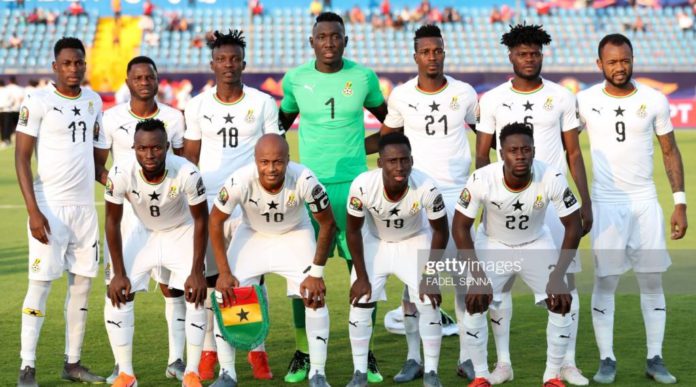Data from the Ghana Tourism Authority has confirmed the untapped market of sports tourism in the country.
In 2014, a report from Sports Tourism in India indicated that this department “equates to $600 billion on an annual basis”.
In 2016, the global sports tourism industry was valued at $1.41 trillion and was expected, pre-Covid-19, to skyrocket to $5.72 trillion by 2021.
Sports tourism statistics from the World Sport Tourism Show also indicate that this tourism product contributes to 10% of the global tourism industry, resulting in up to 15 million international arrivals annually and a forecasted 6% short-term growth every year.
However, in this myriad of attractive figures, Africa – and Ghana particularly – is collecting crumbs.
Indeed, whilst business visits have dominated the reason for international tourist arrivals in Ghana with figures averaging 39.8% in the past four years, sports-related visits accounted for only 1% in 2019 and averaged only 0.75% annually since 2016 – the lowest of the 12 categories of purpose of visits.
2018 – the year in which Ghana hosted the Africa Women’s Cup of Nations and attracted tourists from top three finalist nations Cameroon, Nigeria, and South Africa – reported a 500% surge in sports tourism arrivals.
Remarkably, the numbers jumped to a record 1.5% compared to 0.3% in 2017 and 0.2% in 2016; proof that there is potential in sports tourism.
Curiously, in 2011, the World Bank’s breakdown of tourism product development opportunities in Sub-Saharan Africa did not include sports tourism among the various identified types of tourism in Africa.
Those seven products were beach tourism, business tourism, cultural heritage tourism, diaspora tourism, intra-regional tourism, nature/adventure tourism, and safari tourism only.
READ ALSO
In a more recent analysis (dating from July 2019) which was published in The Ghanaian Times, Dr Alphonse Kumaza – a Senior Team Officer at Ghana’s Ministry of Tourism, Arts, and Culture – neither mentioned sports tourism in the list of “basic constituent of tourism products” nor in that of the “absent products” which he singled out as “theme parks (amusement parks), facilities and infrastructure”.
Ahead of the 2020 African Digitization Conference on Tourism and Trade (ADCOTT) set to happen online on August 25th, the Chamber for Tourism Industry Ghana’s newly appointed COO, Angela Akua Asante, noted:
“In a country that breathes football and boxing and which has produced some of the best athletes in history, a country where rich landscapes across our regions offer the perfect setting for activities ranging from paragliding to canoe sports and much more, overlooking the untapped market of sports tourism appears to be a major error.
“The mammoth investments which sports infrastructure requires will be worth it on the long-term. It is no debate.
“Among the multitude of examples supporting the importance of developing sports tourism in Ghana, West Africa and the entire continent of Africa, just think of how the frequent movement of sports supporters for home-and-away kind of competitions will push road and air travel to be more accessible and efficient, and in turn boost the travelling industry. It’s a win-win scenario.
“There’s a massive need to build sustainable state-of-the-art sporting facilities and implement training programmes to ensure the maintenance of those. Sports tourism must become one of the faces of the continent when international and domestic tourists think about African or Ghanaian tourism,” the Chief Operating Officer concluded.
One of the Chamber for Tourism Industry Ghana’s aim is to reciprocally lend a hand to the country’s sports industry — namely the Ministry of Youth and Sports, all sporting associations, sports data collection and fan engagement agencies, sports media outlets, and sports investors — to transform sports tourism into Ghana and Africa’s eighth tourism product in the next few years.
- About the Chamber for Tourism Industry Ghana (CTI Ghana)
The Chamber for Tourism Industry Ghana is a Ghanaian registered company operating in the tourism environment. CTI Ghana’s aim is to provide leadership and serve as a voice for the industry. Our activities also include — but are not limited to — the provision of strong research, advocacy collaborations, empowerment, international partnership, and trainings. The Chamber was established to help industry players build a high quality, sustainable, and eco-friendly Tourism Environment across all regions in Ghana.

